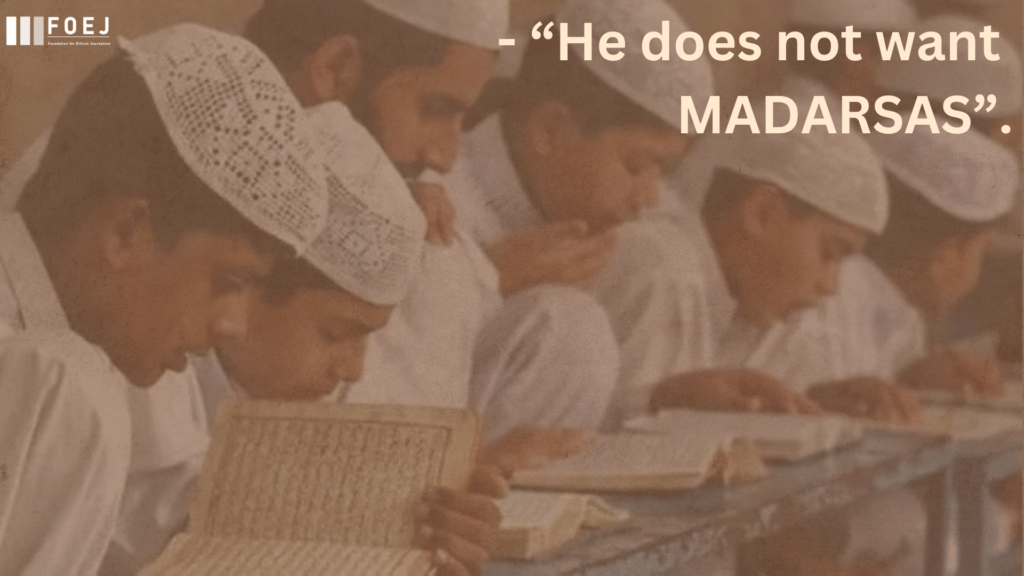Recently, Assam’s Chief Minister Himanta Biswa Sarma made headlines for his speech at a rally in Karnataka, where he claimed the closure of 600 madarsas, which he said were being used to spread fundamentalism and radicalism in the state.
Sarma announces his plans to shut many more madarsas in future, explicitly stating – “He does not want madarsas”. Assam Chief Minister Sarma’s remarks about the closure of madrasas raise concerns about the government’s intentions towards the Muslim community in Assam.
His comments can also be seen as part of a broader trend of rising Islamophobia and hate speech against Muslims in India, which are fueled by right-wing politicians and media outlets, especially during, or before the elections.
While CM Biswa Sarma claims that the closure of Madarsas is aimed at promoting secular education and opening of universities, colleges & schools, many have questioned CM Biswa Sarma’s approach, which seems to be more focused on targeting Muslims rather than improving education in the state.
Further in his speech at Belgavi Karnataka, in a Hindustan Times report, CM Biswa Sarma has been quoted making derogatory comments about Muslims & the perceived negative impact of Mughals on Indian history fueling concerns about the rise of Islamophobia in India.

The rhetoric in his speech was clearly aimed at polarizing communities and creating an atmosphere of hate and distrust. Along with that, CM Biswa Sarma’s comments were not just historically inaccurate but also highly politically motivated. By demonizing the Mughals and linking them to contemporary Muslim communities, Mr Sarma was attempting to create a sense of “us vs. them” and to appeal to Hindu nationalist sentiments.
In the current political climate, where communal tensions are running high, Sarma’s comments highlight the need for greater sensitivity and inclusivity in political discourse. As a state leader, it is important for them to promote unity and understanding among communities, rather than resorting to divisive rhetoric that only serves to deepen existing fault lines.
Also, the decision of the Biswa Sarma Government to close down madrasas is highly problematic. While there have been cases of radicalization in some instances, it is unfair to paint all madrasas with the same brush. Many madrasas provide valuable education and social services to their students, and play an important role in promoting community cohesion and religious harmony.


